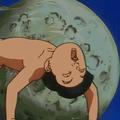中文演讲已经游刃有余,就怕接下来的英语课了,那你是不是也应该做好英语演讲的准备了呢?希望能帮到你哟。
英语课前演讲一分钟初中篇一
Over the past Spring Festival, I got involved in a family dispute. Right before I got home, four satellite channels of CCTV were added to the 14 channels we had already had. In prime time at night, they all had interesting shows. Therefore, the five of us-my parents, my sisters and I-had to argue over what to watch. Finally, we agreed that we should watch the "most interesting" programme... If we could agree what that was.
However, all of us there remember that for a long time after we had TV, there were only one or two channels available. The increase in options reveals an important change in our life: the abundance of choice.
Fifteen years ago we all dressed in one style and in one colour. Today, we select from a wide variety of designs and shades.
Fifteen years ago, we read few newspapers. Today, we read English newspapers like the China Daily and the 21st Century, as well as various Chinese newspapers.
Fifteen years ago, English majors took only courses in language and literature. Today, we also study Western culture, journalism, business communications, international relations, and computer science.
英语课前演讲一分钟初中篇二
The emergence of choices marks the beginning of a new era in China's history; an era of diversity, of material and cultural richness, and an era of the rebirth of the Chinese nation.
We enjoy the abundance of choice. But this has not come easily.
About 150 years ago, China was forced to open up its door by Western canons and gunboats. It has been through the struggle and sacrifice of generations that we finally have gained the opportunity to choose for ourselves. The policy of reform and openness is the choice that has made all the difference.
Like others of my age, I'm too young to have experienced the time when the Chinese people had no right to choose. However, as the next century draws near, it is time to ask: What does choice really mean to us young people?
Is choice a game that relies on chance or luck? Is choice an empty promise that never materializes? Or is choice a puzzle so difficult that we have to avoid it?
First, I would like to say: To choose means to claim opportunities.
I am a third-year English major. An important choice for me, of course, is what to do upon graduation. I can go to graduate school, at home or abroad. I can go to work as a teacher, a translator, a journalist, an editor and a diplomat. Actually, the system of mutual selection has allowed me to approach almost every career opportunity in China.
英语课前演讲一分钟初中篇三
Indeed, this is not going to be an easy choice. I would love to work in such big cities as Beijing or Shanghai or Shenzhen. I would also love to return to my hometown, which is intimate, though slightly lagging in development. I would love to stay in the coastal area where life is exciting and fast-paced. I would also love to put down roots in central and western China, which is underdeveloped, but holds
great potential.
All of these sound good. But they are only possibilities. To those of us who are bewildered at the abundance of opportunities, I would like to say: To choose means to accept challenge.
To us young people, challenge often emerges in the form of competition. In the next century, competition will not only come from other college graduates, but also from people of all ages and of all origins.
With increasing international exchanges, we have to face growing competition from the whole outside world. This is calling for a higher level of our personal development.
Fifteen years ago, the knowledge of a foreign language or of computer operation was considered merely an advantage. But today, with wider educational opportunities, this same knowledge has become essential to everyone.

 那晚越女说我?
那晚越女说我?

